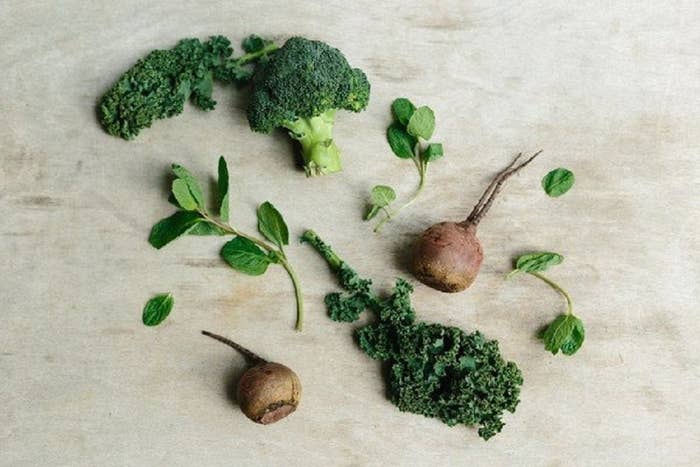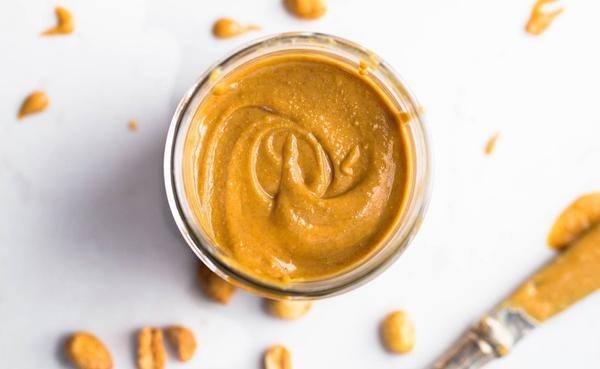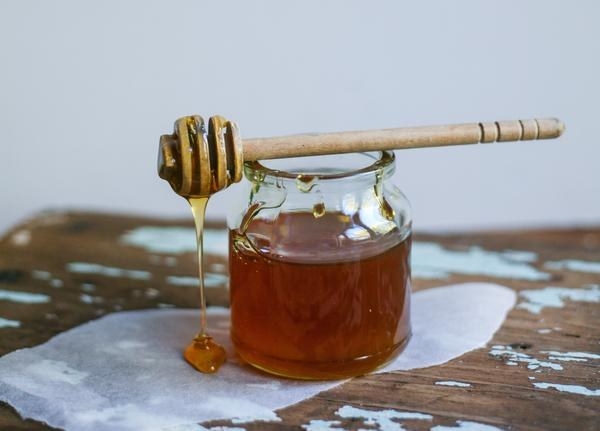After blending all these years, I noticed a consistency that runs through a perfect smoothie. A formula, if you will. The most nutritious and delicious combos look like this:
2 cups of veg
1 cup of frozen fruit
1 spoon of protein
1 cup of a plant-based liquid
1 serve of a natural sweetener
2 Cups of Veggies

A good smoothie always starts with veggies. There's no easier way to get serious size servings of age preserving multivitamins into your body. The first one on this list features in 70% of my smoothies but it doesn't hurt to have options:
baby spinach
kale
beetroot
mint - one cup only
romaine
red cabbage
cabbage
broccoli
silverbeet / swiss chard
bok choy
1 Cup of Fruit
Next up is frozen fruit. It provides creamy texture, fibre and slow releasing energy. Don't you ever consider the fructose content as the 'fruit is sugar' argument is a complete lie.
If you're not organised enough to freeze your fruit (which is me most days), go fresh with 1/2 a cup of ice.
The best fruits for smoothies are:
banana - no better smoothie ingredient
berries - use any, they're all antioxidant rich
pineapple - a unique anti-inflammatory, plus it's delicious
lemons - powerful detoxifier that should be paired with banana
mango - seasonal, sweet and vitamin C rich
cucumber - the water content is great for your skin
avocado - you'll enjoy their flavour more in salads but if you've got a surplus
apple - doesn't need to be frozen, works well with cinnamon
papaya - great for skin
cherries - mix with raw chocolate
figs - massive fibre source
watermelon - helps with bloating
kiwifruit - fibre dense multivitamin
pear - full of essential minerals
passionfruit - garnish on top
1 Scoop of Plant-Based Protein

Contrary to its rep, protein doesn’t mean biceps and backwards caps. Read our Naturopath’s article on why protein is a necessity.
Protein is also brilliant for keeping you full. That means less grazing immediately afterwards and there's evidence that a protein dense breakfast leads to healthier choices throughout the day.
There's so many brilliant plant based proteins, with similar nutritional properties. Nuts and seeds for example have similar protein density (20g per serve) and are full of the essential fats and vitamin E that make your skin healthy.
Include a generous handful of nuts and seeds in your smoothie. Or a heaped tablespoon of nut butter or plant based powder. My favourites are:
pumpkin seeds
rolled or steel cut oats
hemp seeds
chia seeds
flax
almonds
cashews
walnuts
sunflower seeds
peanut butter / nut butter
tahini
plain Greek yoghurt - the fermentation stabilisers the acidity of animal protein and creates gut healthy probiotics
I used to love whey protein. I don't touch it any more. Read the ingredients on your favourite tub and tell me which of those foods you eat by themselves. Even whey protein itself is a leftover bi-product of making cheese. It might be protein dense but you'd have to present a lot of data to convince me that we're nutritionally designed to thrive off processed milk from another species.
That being said, I'm not a huge advocate for plant based powders either. Again, read the label. They have the same sweeteners, synthetic ingredients and stabilisers as whey and casein. 100% pea or brown rice protein powders are seriously dense but make sure they are organic or they might be manufactured in China with the same sincerity as whey on a huge dairy farm.
1 Cup Plant-Based Liquid
You'll see a lot of coconut water and almond milk recommendations on Green Press. They're our go-to's. I particularly love 100% coconut water. It's naturally sweet and full of hydrating electrolytes.
Almond milk is a little creamier and cheaper to buy but unlike coconut water, not every almond milk is the same. Perfect world, you'll make your own. But if you're time poor (#lazy) like me then you'll buy it. Try find one with a 1-6 week expiration date, sold in a fridge. These ones cost more and are more perishable. Therefore, better for you. If you have to buy the room temperature stuff in a tetra pack, carageenan is a big NO-NO. Not too far behind the undesirable list is rice malt syrup. The best almond milks have over 10% almonds and nut many more other ingredients than water.
Other acceptable liquids are:
rice milk
oat milk
cashew milk
filtered water
green tea
coconut milks (if it's in a can, add water to thin it out)
I detest calorie conscious smoothies of water + veg + fruit. It tastes thin and they're completely unsatisfying. However, if you add nuts or seeds to the blender then you're effectively creating a fresh almond milk, inside the smoothie.
Long story short. It's only acceptable to have a water smoothie if you've got a nut or seed in the recipe.
1 Spoon Of Natural Sweetener


